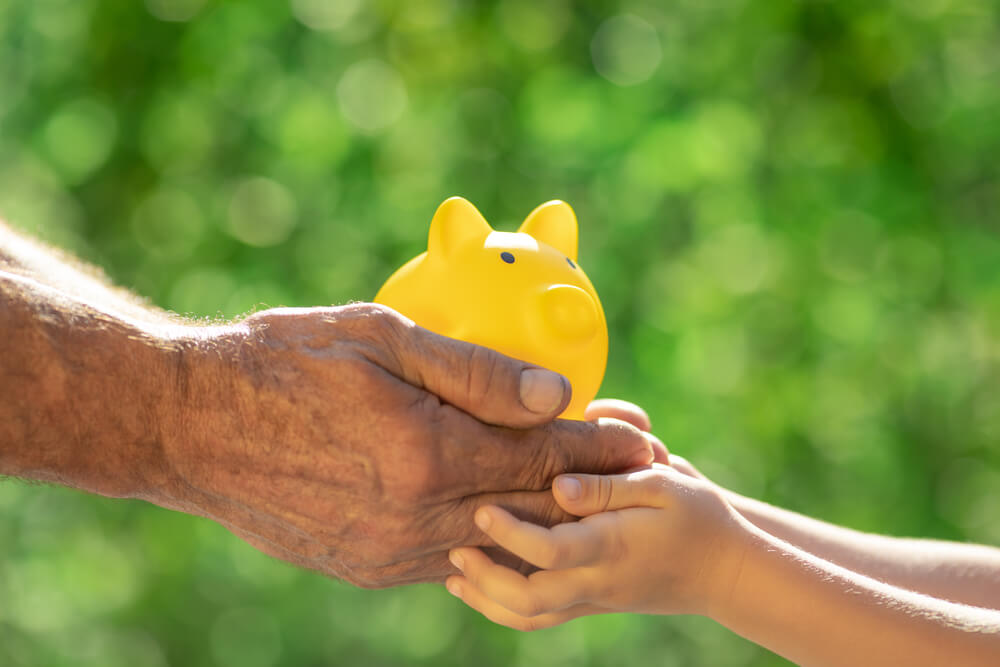November is a special time of year during which most people around the country celebrate Thanksgiving. While this holiday is centered around a turkey feast, family gatherings — and probably lots of football — the day serves as an opportunity for so much more than that.
Thanksgiving is a time for exactly that — giving thanks. Here, Apex Leadership Co. looks at the powerful impact that gratitude has on youth and how parents and guardians can help teach their children to have gratitude on Thanksgiving and all year round.
Having gratitude is simply being thankful for something, showing appreciation, or returning the favor of a kind act. It’s important that youth learn the power that gratitude can have on their lives at an early age. In fact, studies show it can even impact their happiness. According to a study published in the Journal of Happiness Studies in 2019, gratitude is linked to happiness in children by the age of five years old.
Another study published in the Journal of School Psychology in 2008 reported that grateful children between the ages of 11 and 13 years of age tend to be happier, more optimistic, and have better social support, in addition to being more satisfied with their schools, families, communities, friends and — perhaps most importantly — themselves.
In fact, an article on The Greater Good Science Center at the University of California, Berkeley’s website explores how mental health professionals can help clients achieve “the greatest possible benefit from treatment in the shortest amount of time.” The article states that one activity proved to be promising to “complement psychological counseling with additional activities that are not too taxing for clients but yield high results” — the practice of gratitude. The article goes on to state that multiple studies point to the fact that “people who consciously count their blessings tend to be happier and less depressed.”
This is important at every age, but the earlier a child can learn to be grateful for what they have, the better off they’ll be as they develop into the leaders of tomorrow. “Counting your blessings” is actually a great place to start! Parents might encourage their children to begin and end each day with some gratitude rituals. This can be as simple as taking stock of what they have (health, family, friends, a warm bed, yummy food, books, toys, etc.) and fully acknowledging (feeling) the emotions associated with being grateful.
Focusing on gratitude can help people eliminate toxic emotions, according to the articles’ authors Joshua Brown and Joel Wong wrote. They completed independent research that included having study participants write letters of gratitude versus writing about negative thoughts or feelings (the third group of participants was not assigned any writing activity). Those that wrote gratitude letters reported significantly better mental health just four weeks into the exercise and 12 weeks after the writing exercise portion of the study ended. The article states, “Not surprisingly, those in the gratitude writing group used a higher percentage of positive emotion words and ‘we’ words [first-person plural words], and a lower proportion of negative emotion words, than those in the other writing group.”
So encouraging children to not only say things they are grateful for (even if they are only saying these things to themselves as part of their gratitude ritual), writing down things they are grateful for can serve as another way to help them learn gratitude — and to benefit from it! Teaching gratitude can begin with the most basic approach of encouraging children to say thank you when they receive something or when someone has done something nice for them. This might seem like a demanded social expectation, but there is more to it than that. Saying thank you to a child or thanking them for “grateful behavior,” such as saying thank you on their own, can reinforce an attitude of gratitude.
Apex Leadership Co. encourages parents and guardians to use the month of November as an opportunity to help youth understand the concept of gratitude and how they can use the practice to benefit their own lives — and the lives of others around them!


